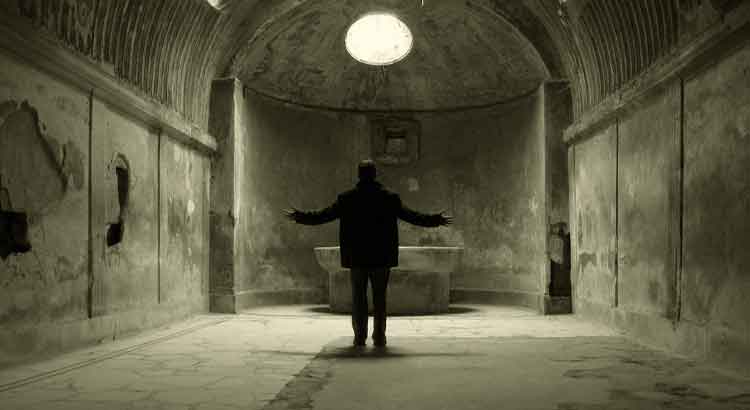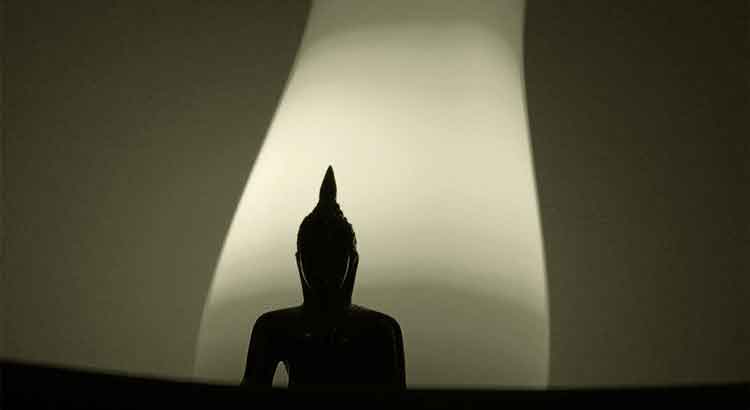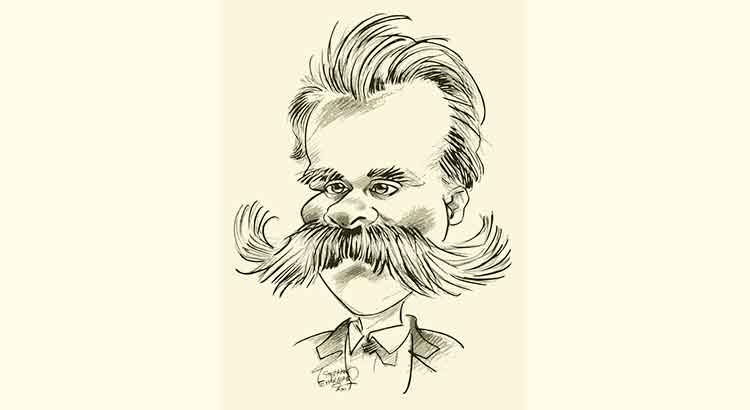Immersing oneself in problems, there comes a time when it seems necessary to sketch answers. To do otherwise is to give up or, at least, to stop moving forward. Much can be said about the answers that, for example, Dostoevsky’s work culminated in; what cannot be said is that it did not embody a complete cycle. In it, multiple problems are represented in various manifestations, and for all of them, Dostoevsky points to the solution—whether it is accepted or not. There is no escape: although it is possible to postpone the ultimate confrontation, this veiled need always seems to lurk asking, “So what?”—and it seems a matter of honor to present a conclusion to it.
Tag: philosophy
Meditating With Patanjali’s Yoga Sutra
Bothered by not knowing Sanskrit, I pull out an English translation of Patanjali’s Yoga Sutra and a spectacular scene occurs. Naturally, I pull out the Yoga Sutra interested in reading the sutras that compose it. But that is not what happens. I open the book and the translator, after explaining to me how difficult it is to translate Sanskrit, tells me in detail about his entire academic career, making a point of mentioning each of the subjects he has studied and specialized in, each of his published articles, master’s and doctoral theses, then explains to me how rich Indian philosophies are, how stupid are the translators who have not studied as he has, who have not specialized in as many areas as he has, who ignore metaethics, and who do not translate with such a shrewd and diligent method as his. At this, I am dragged through an introduction of an unbelievable sixty pages! Is it over? It is not over. The work begins, and I discover that the translator is also a commentator, and that his comments are not located in the footer or at the end of the text, but interrupting the author’s lines. For each sutra—and there are sutras that are limited to one sentence—the translator then appends to it, not even having the humility to reduce the font size, from one to seven pages of comments! What is this? I ask in all sincerity: how can a work presented in this way be sold under its original title? I followed the commentator until I realized that I was definitely in front of a disfigured work, which generates everything but the impression of the original. To read a book of sutras is to pause after each aphorism and ruminate it in mind. But this is impossible when immediately afterward the translator starts endless chatter! The effect is exactly the opposite: the entire work loses its synthetic character, its density is gone, it turns from a collection of sutras into a long and prolix study of hermeneutics and comparative philosophy. Is this what I pulled off the shelf to read? No, it is not. Regardless of the relevance of the comments, the commentator prohibits me from thinking and absorbing the work directly, diverting my attention and simply preventing the work from speaking in its natural cadence. A sutra ends in a comma, and I find its sequence when I no longer even remember what it was talking about. I open the Yoga Sutra and read the expert on metaethics and philosophy of language; I open the Yoga Sutra and after each aphorism, instead of meditating calmly, I have the impulse to stand up and shout, “Shut up, man! Respect the work and carry your petty personal promotion away from me!” How wonderful… I achieve the feat of frying my nerves with a meditation manual!
Schopenhauer’s Sleep
It is said that Schopenhauer slept with loaded pistols beside his bed. Whether true or not, the image is of formidable accuracy. Here is reasoning represented in its virtues and its consequences! What to say? Schopenhauer, a very rare intelligence, guided by what his vigorous mind dictated, could not contain the side effects of his rational conduct. Good judgment dictates that one should always have loaded pistols near oneself, always being suspicious of life, of others, of everything!, always being in a state of alert, fearful and cautious, knowing that life tends to death, dreams to disappointment, desires to frustration, joy to pain… The consequences, however, may be against good judgment: how to consider reasonable a conduct that makes one second of sloppiness impossible? Terrible, terrible… Pistols loaded next to the pillow! To live like Schopenhauer is to uproot the possibility of peace, fostering unbearable psychological terror. Better to be a dwarf and have thousands of quiet nights before arrives the only fatal night…
Nietzsche’s Grandiose Madness
Although Schopenhauer’s poison has already impregnated itself absolutely in my literature, I appreciate much more the grandiose madness of Nietzsche, which demands a greater effort of the spirit and rewards with honor the very few capable of achieving it. To overcome nihilism and inoculate in the mind a resounding and definitive “yes,” to despise the petty and ephemeral hardships, to transform existence into a rotund exclamation,—even if it is necessary to contradict the rational:—all this seems more beautiful and more worthy of value.



